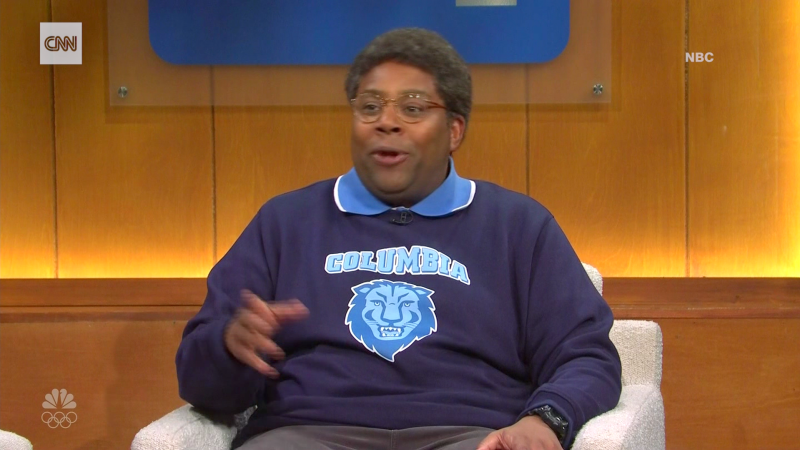When former President Jimmy Carter entered hospice care in February, many assumed that his death would be imminent, a matter of weeks at most. But six months later, he is still spending time with family and friends, still enjoying moments with his wife of nearly eight decades. Life continues, albeit under a shadow.
As he now approaches what has been reported to be his “final chapter,” Mr. Carter’s decision to enter hospice and to continue publicizing that choice is a fitting final gift of candor from a former president to an American public that has long been uncomfortable with our own mortality.
Here in the hospital where I work as a critical-care doctor, the very word “hospice” so often conjures the idea of death and defeat. Just a few days ago, I found myself in a conference room with a man whose wife was dying. She was in her 50s, with cancer that had infiltrated her chest and abdomen. Her time was short, a matter of months at most, and she was in pain and scared, and wanted to be at home. So I suggested to the husband that we consider hospice. I said the word gently, but even so, my patient’s husband flinched. No. His wife wanted to do everything, to fight, to not give up. It wasn’t time for hospice. Not yet.
I tried to explain that hospice care could help his wife stay at home — which had been her goal — with the tools to manage her symptoms as they worsened. I tried to explain that this was not about “giving up,” but about maximizing the quality of the time that she had. There was so little that we could do for her in the hospital, ultimately. But all he could hear was a word that made him think of endings and loss.
That is why hospice services are so often engaged late, in the days immediately before death, if at all. Half of all patients in hospice are enrolled for only 18 days or less. One in 10 are in hospice for only one or two days before they die. It is easy to understand how this happens. After all, to choose this path is to acknowledge that we will all end, a reality that few of us are willing to face until there is no choice left.
But Mr. Carter and his family were able to see it differently. After a series of short hospital stays, this winter Mr. Carter made what for so many is an impossible decision. He would opt for hospice care in order to remain at home rather than undergo further medical interventions — even though, we now know, he was not in his final days. And just as in 2015, when he announced that his melanoma had spread to his brain, he would make this decision public.
“That is completely characteristic of the Carters,” Jonathan Alter, a biographer of the former president, told me. “It is the way they have lived their entire lives.” Mr. Alter’s book “His Very Best” aims to reassess Mr. Carter’s four years in office and challenge the common belief that Mr. Carter was but a mediocre president who became a great former president. Reflecting on the presidency, he describes a man of compassion and decency who was not afraid to make decisions that might be unpopular, who kept the peace, advanced human rights and worked to protect the environment, as symbolized by his placing solar panels on the roof of the White House.
What is perhaps even more remarkable — especially today, in a country where the health status of a president can be a closely guarded secret — Mr. Carter has always been one to try to tell the truth to the American people. In his book, Mr. Alter tells a story about the time Mr. Carter developed a case of painful hemorrhoids during his presidency and had to miss a day’s work. It would have been easy for him to obfuscate the truth of his medical condition, but Mr. Carter had no interest in doing so. “He said that if the global markets think the president of the U.S. is down and don’t know why, that’s a problem,” Mr. Alter said. “So tell the press I have hemorrhoids.” And his staff did.
When it came to the transition to hospice care, Mr. Carter was no different. And perhaps in being so open and honest, he could encourage others to pursue the same path. “This is intentional,” Mr. Alter noted. “They know this is giving a boost to the hospice movement and they’re gratified by that.”
This is not to say that home hospice is the only “right” way to die. Mr. Carter is surrounded by family with the resources to care for him if his symptoms worsen. Home hospice is not designed to offer care 24 hours a day, seven days a week. Instead, the system largely relies on families to care for the people they love, and there are many families for whom this is not possible or for whom the harsh realities of the dying process are simply too much to bear. Dying at home is not the only way to preserve grace and dignity at the end, but for some, it is the right way.
They say you die as you lived. In the years since he left the White House, Mr. Carter has devoted himself to philanthropic causes throughout the globe. Over the past four decades, he has helped to build and renovate thousands of homes through Habitat for Humanity, offering safety and stability to those who would otherwise have none. That work is one of his great legacies, so important to him that he attended a building project just a few years ago, heavily bandaged and bruised after a fall at home.
It is only fitting that a man who has built homes for so many others would return to his own home as he sees his time growing short. And when his time in hospice draws to a close, there is likely to be no medical team rushing in, no chest compressions or shocks. There will be only a final breath, and then there will be quiet.







More News
How One Latino Pastor Became a Foot Soldier for Trump
How Humans Failed Racehorses
Gallows Humor and Talk of Escape: Trump’s Possible Return Rattles Capital